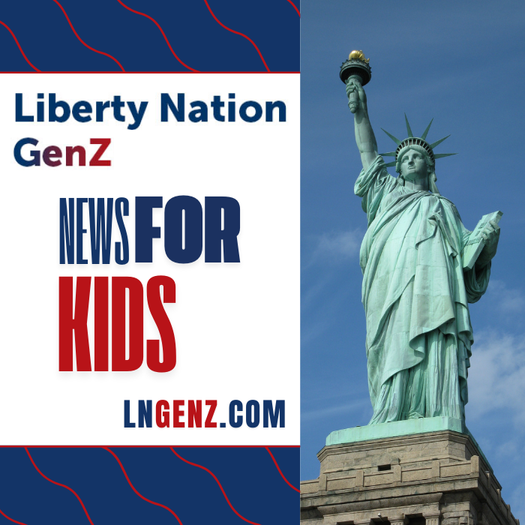By Andrew Wolf, Jr.
Free speech vs hate speech – where does one draw the line? Washington and London are currently negotiating a tariff agreement, and the administration of US President Donald Trump wants the UK government to repeal hate speech laws in order to secure a trade deal between the two nations, the Independent reported on Wednesday, citing claims by sources close to US Vice President JD Vance.
In a recent interview, Vance spoke of his admiration for the UK and expressed optimism about the negotiations. Good chance of agreement, says the VP – but supporters say his concerns over Britain’s hate speech laws “are still a red line.” However, the sources reportedly claimed to the Independent that Vance’s optimism on a trade deal “is a way of putting further pressure on the UK over free speech.”
The UK’s hate speech laws have led to a significant number of arrests. In 2023, UK police detained over 12,000 people – approximately 33 per day – for online messages deemed offensive or distressing under the legislation, according to The Times.
Critics among civil liberties groups argue that these laws are vague and infringe on free speech. Mr. Vance’s recent address to the politically conservative Heritage Foundation think tank was cited as an example of his views on Western culture and free speech being linked to securing an agreement. “No free speech, no deal. It is as simple as that,” the Washington source told the outlet.
The UK has been spared the worst of the massive wave of levies imposed by Trump earlier this month. The country faces a 10% tariff on all goods and 25% on steel, aluminum and automotive imports. It is understood that Britain has already offered to drop its proposed digital services tax as a means of getting a trade deal through. But the US wants to see laws on hate speech repealed as well as plans for a new online safety law dropped. These two issues seem to be the main sticking points from the White House’s perspective.
The problems between the US and the UK have a history. Prime Minister Keir Starmer visited the White House for the first time since Mr. Trump’s return and clashed with Mr. Vance in front of the TV cameras in the Oval Office. The vice-president claimed that free speech was being undermined in the UK and that laws being brought in for online safety were an attack on US tech giants.
Most recently, the trial of Isabel Vaughan-Spruce for silently praying outside an abortion clinic has become another cause celebre in the US, with Mr. Vance criticizing the UK legal system over the case.
Free Speech, Hate Speech, and Human Rights
What is the law on free speech?
Under Article 10 of the Human Rights Act of 1998, “everyone has the right to freedom of expression” in the UK. But the law states that this freedom may be subject to formalities, conditions, restrictions or penalties as are prescribed by law and are necessary in a democratic society.

What is the law on hate speech?
A number of different UK laws outlaw hate speech. Among them is Section 4 of the Public Order Act 1986 (POA), which makes it an offence for a person to use “threatening, abusive or insulting words or behavior that causes, or is likely to cause, another person harassment, alarm or distress.” This law has been revised over the years to include language that is deemed to incite “racial and religious hatred,” as well as “hatred on the grounds of sexual orientation” and language that “encourages terrorism.”
The Terrorism Act 2006 criminalizes “encouragement of terrorism” which includes making statements that glorify terrorist acts.
Section 127 of the Communications Act 2003 makes it illegal to send a message via a public electronic communications network that is considered grossly offensive, or of an indecent, obscene or menacing character.
“This offence is incredibly broad and has been used to address jovial, albeit misjudged communications – it carries huge implications for freedom of expression,” says justice and freedom campaign group Liberty.
Why is the debate so controversial?
Criminalizing the incitement of violence or threats “can be seen to be a justifiable limit on freedom of expression,” says Liberty. What is controversial “is the criminalization of language (or behavior) which may be unpleasant, may cause offence but which is not inciting violence, criminality etc,” the organization adds.
Writing for Prospect magazine, Hugh Tomlinson QC argues that the problem lies with the lack of a UK constitution. “Free speech does not, historically, have the same primacy under English law [as the US],” he explains.
“A proper ‘written’ constitution sets limits on the powers of the institutions of government, but the loose and flexible set of rules that is described as Britain’s unwritten constitution sets no such limits.”
Writing in The Spectator, Lionel Shriver says the UK should follow the US lead.
“Because the alternative is what the UK has now, and it will only get worse: government systematically legislating not just what we say but what we may believe.
~
Andrew Wolf, Jr. is director of The Fulcrum Institute, an organization of scholars dedicated to the classical liberal tradition. He has also been published stateside in American Spectator, The Thinking Conservative, and American Thinker, as well as abroad in International Policy Digest, Times of Israel, and The Daily Philosophy, among others.

















